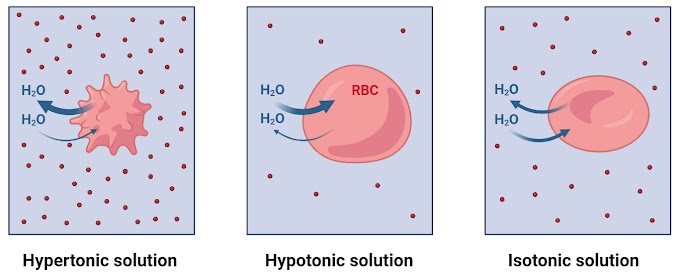Introduction
In everyday life, the advancement of science and technology has provided us with a lot of facilities. Think about the function and significance of petrochemicals, soap, medicines, and medicines, cleaning products, plastics, paper, paints, pigments, pesticides, and insecticides. All of these are the product of chemists' labors. Chemistry offers information and strategies for improving our well-being and the environment and discovering and conserving natural resources.
Basic definition of chemistry
Chemistry word originated from the Greek word χημεία (khēmeia) which means "pour together" or "put together". In English, the chemistry word is made up of two words, “chem” and “istry”. “Chem” means chemical reaction or chemical nature of something while “istry” is used to represent an engagement of something.
In other words, chemistry is the branch of science dealing with the composition, properties, structure, and reactions (energy production or consumption) of matter.
Matter
The matter is described as something that takes up space and has mass and volume. All of the things present around you are made up of matter. Atoms and compounds are all made up of very tiny sections of matter. These atoms go on to create the objects that you see and touch every day.
Matter exists in three forms i.e., gas, liquid and solid. The matter is divided into two forms, substance and mixture.
Substance and mixture
The pure form of matter is called a substance. The substance is further divided into elements and compounds.
While the impure form of matter is called a mixture. Mixtures are of two types homogenous and heterogeneous.
Chemistry study the physical (color, taste, smell, hardness, solubility, shape of the crystal, boiling or melting points) and chemical properties of substances.
Branches of chemistry
The field of chemistry originated when humans discovered fire. Human relies on water, oxygen, and food, all of which are related to chemistry. Over time, the more the human studied the chemical nature of things, the more the knowledge incorporated in the field of chemistry, which led to the origin of various branches.
Now, chemistry is not just one field but it is a vast network of different branches working for the benefit of humans. Some of the main branches of chemistry are:
1. Physical chemistry
It deals with physical properties, compositions, and changes of matter. It explains the atomic structure, molecule formation, thermodynamics, and gases, liquid and solid behaviors.
2. Inorganic Chemistry
It studies the composition, properties, and reactions of all elements and their compounds other than hydrocarbons and their derivatives. Inorganic chemistry deals with cement, glass, metallurgy industries.
3. Organic Chemistry
Organic Chemistry deals with the structure, composition, properties, and reactions of compounds containing carbon and oxygen as well as their derivatives. Petroleum, pharmaceutical, and petrochemicals industries are based on organic chemistry.
4. Nuclear Chemistry
This branch is concerned with nuclear processes, radioactivity, and the properties of nuclear compounds. This branch is mainly concerned with atomic energy and its applications in everyday life. It has wide applications in medical care (radiotherapy), food preservation, and electrical power generation by nuclear reactors, etc.
5. Biochemistry
It deals with the chemical structure, composition, and properties of substances present in living things. It studies the structure, composition, and formation of carbohydrates, protein, and fats. This branch has a wide application in food science, agriculture, and medicine.
6. Industrial Chemistry
This branch study the synthesis of chemical compounds used in different industries. The manufacturing of chlorine, oxygen, ammonia, nitric acid, and other industrial chemicals are studied in this branch and directly influence the working of different industries where these products are used as raw materials. This branch has wide applications in the paper, paint, textile, and soap industries.
7. Analytical Chemistry
It is concerned with the separation and analysis of substances to identify their components. Two types of analysis are done in this branch i.e., qualitative and quantitative. In qualitative analysis, quality such as composition or purity of substance is measured. While, in quantitative analysis, the quantity or sum of each component present in a substance is studied. Water, food, clinical and environmental analysis are done under this branch.
8. Environmental Chemistry
In this branch, the components of the environment and climate and the impacts on human activities on them are studied. Other branches of environmental chemistry are related to biology, ecology, geology, soil, and water. To enhance and protect against contamination, awareness of chemical processes taking place in the atmosphere is important.
Some questions and answers
1. Define biochemistry
A. Biochemistry deals with the chemical structure, composition, and properties of substances present in living things such as carbohydrates, protein, and fats.
2. Differentiate between organic and inorganic chemistry?
A. Organic Chemistry deals with the structure, composition, properties, and reactions of compounds containing carbon, hydrogen and oxygen as well as their derivatives. While, inorganic chemistry deals with the elements or substances other than hydrocarbons and their derivatives.
3. Define chemistry
A. Chemistry is the branch of science dealing with the composition, properties, structure, and reactions (energy production or consumption) of matter.
4. What is substances in chemistry?
A. The pure form of matter is called a substance. The substance is further divided into elements and compounds.
5. What are the 3 main branches of chemistry?
A. The three main branches of chemistry are organic chemistry, inorganic chemistry and physical chemistry.






0 Comments